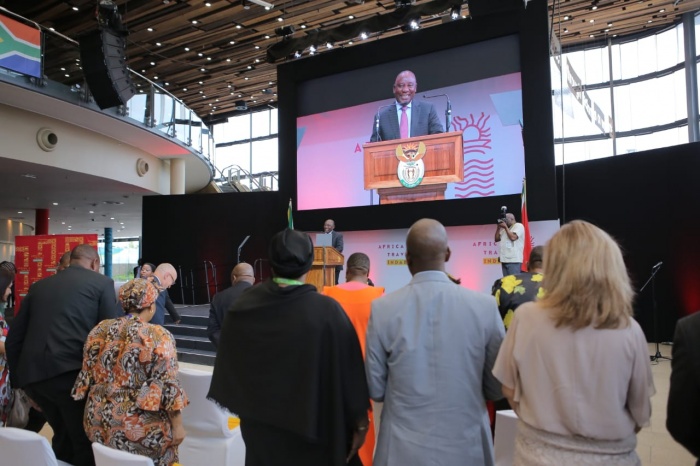
Breaking Travel News investigates: Africa’s Travel Indaba
“Travel is the new gold,” claims South Africa president, Cyril Ramaphosa, during a surprise visit to Africa’s Travel Indaba in Durban. Speaking just days ahead of national elections that could see him, theoretically, swept from power, the head of the African National Congress party is keen to garner as much support as he can from the hospitality sector. Indeed, he is here to reveal that there will be a radical overhaul of the visa regime for travellers looking to visit this African tourism hotspot.
At the launch of the largest show on the continent, the news is greeted with cheers. For too long the destination has been shooting itself in the foot with its visa regime, making it fiendishly complex for travellers to visit. Ramaphosa explains: “We must reduce the onerous and often unnecessary bureaucratic red tape that tourists who want to visit our country face. This requires of us to streamline our tourist visa regime. We are in the process of radically overhauling our visa dispensation for the rest of the world and introducing a world class e-visa system.”
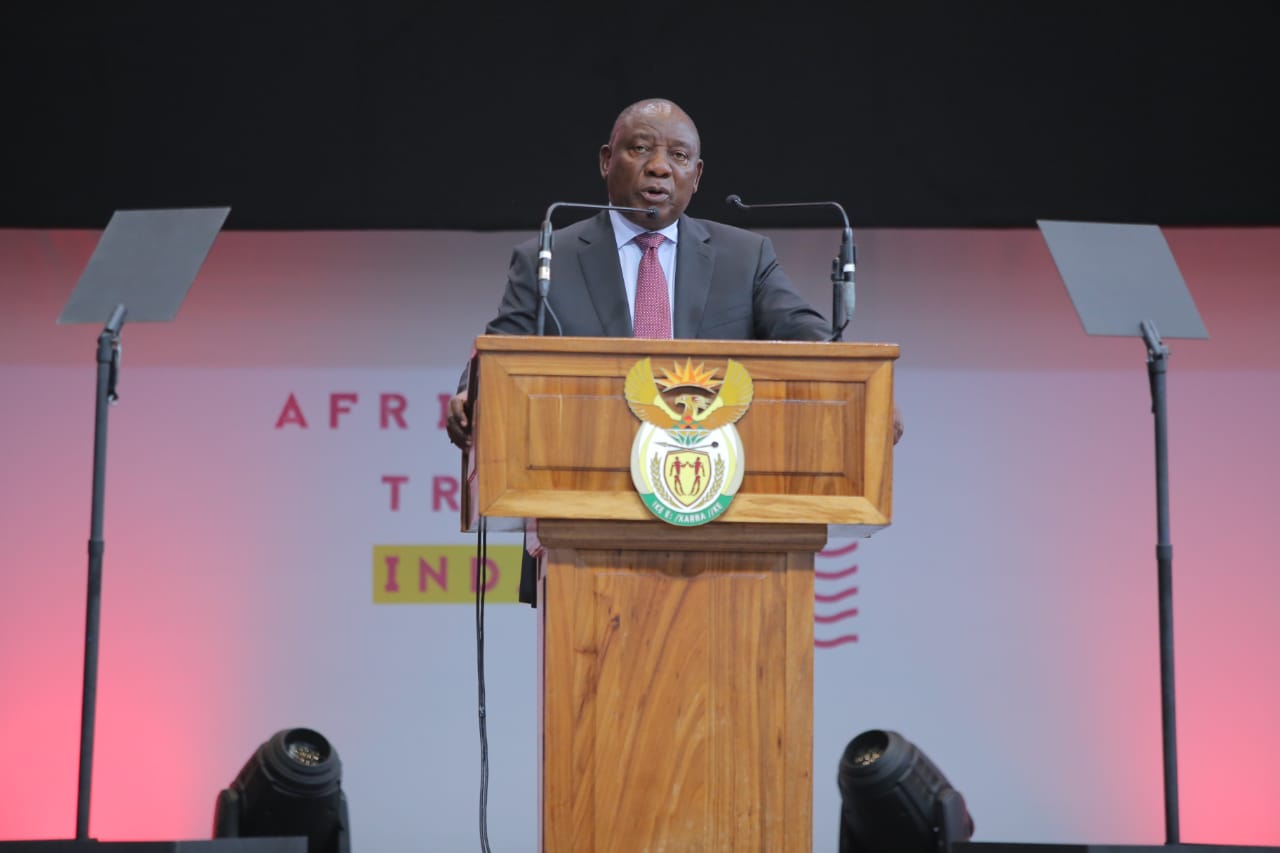
President Ramaphosa, currently up for election in South Africa, sought to woo the hospitality market
There has been great controversy surrounding South Africa’s regulations, which required original birth certificates for people travelling with foreign minors, for example. This system was ostensibly designed to tackle child trafficking, a worthy aim, of course, but the delays and extra complexity this caused for holidaymakers had put off a number of visitors.
South Africa minister of tourism, Derek Hanekom, had hinted at such a sorely needed easing of the visa system in his opening speech, echoing an acknowledgement made when speaking to Breaking Travel News at World Travel Market late last year. Chatting here at Indaba, he confirmed an overhaul of the visa system was now underway. He added that there had already been some loosening, but a failure to transmit this information to airlines had caused further confusion.
_NS.jpeg)
His speech was well received by the travel industry during Africa’s Travel Indaba in Durban
Hanekom explained: “Combined with a few other factors, the visa difficulties contributed to an immediate downward trend in visitor numbers. In 2016, nice recovery, but clearly without the visa difficulties we should have had a much greater recovery. So, from having been known as a family friendly destination - and of course upon arrival in South Africa it is family friendly - we made it more difficult for families. I am being quite frank with you; I think that the new administration is going to address these issues.”
President Ramaphosa also spoke about tackling crime, particularly against tourists, to make South Africa more attractive to cautious markets such as China. Other key points included the need to embrace new technology in tourism, empowering the youth and women within the industry, and the need to promote domestic tourism. Africa’s economic growth and expanding middle class mean that there is an opportunity to attract new visitors, he explained.
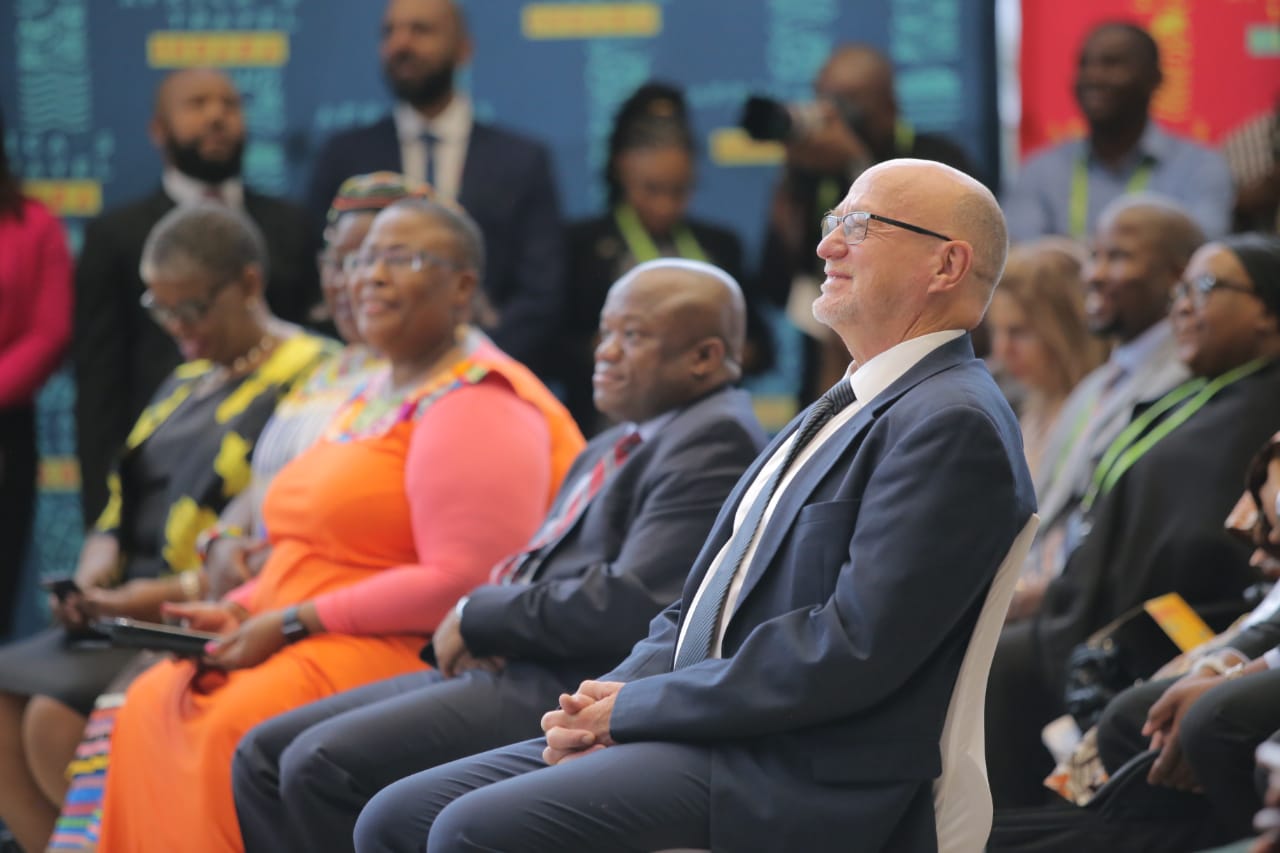
South Africa minister of tourism, Derek Hanekom, gave the speech a warm response
As well as the visa overhaul, president Ramaphosa said he was encouraged by the development of the Single African Air Transport Market, which aims to lower airfares and increase the frequency of flights to more countries. The government is promoting this as a step towards forming a more united continent. As the president described: “As the global citizens that we all are, we are physically separated by borders whichever part of the world we come from. We are, however, united by our affinity and our love for this great continent of Africa, the cradle of humankind.”
Minister Hanekom added to this narrative, emphasising the benefits of a unified continent: “We need to be united in our aspiration to build and brand Africa as a continent of successes and opportunity. Let’s work together to replace the sometimes-negative narrative of Africa with the real story of so many nations on the move, of people innovating and moving confidently into the future.”
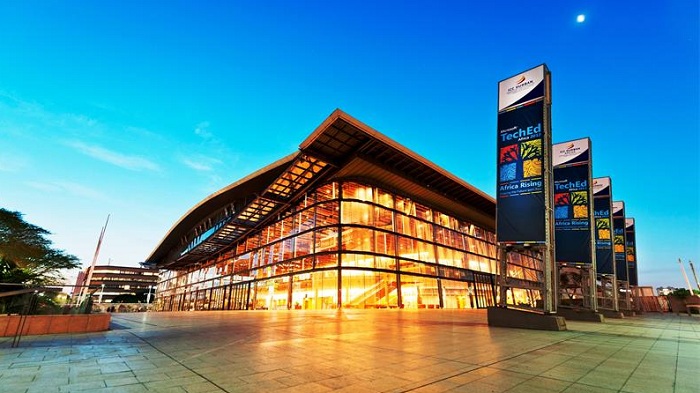
Africa’s Travel Indaba was this year hosted at the Durban International Convention Centre
Africa’s Travel Indaba, held at Inkosi Albert Luthuli Convention Centre - itself considered Africa’s Leading Meetings & Conference Centre by voters at the World Travel Awards - is one of the largest events in the African tourism calendar, bringing together over 7,000 exhibitors; including local and international buyers; tourism and business media; industry stakeholders; members of tourism associations and captains of industry from over 80 countries.
The event comes in a good year for tourism after recent setbacks, including the much publicised ‘drought’ in Cape Town. Visitor numbers have been gradually increasing again, while minister Hanekom was also keen to point out the positive impact the tourism sector can have on economy more generally. Referring to the value-chain that can feed down to small businesses and employment, he said the sector has a particular impact in rural communities, where one working family member can support on average five-to-ten people.

Durban was offered its chance to shine during the event
South Africa is looking to double its international tourist arrivals from 10.5 million at the start of the decade to 21 million in 2030, with the potential to create a further two million jobs. In the state of the nation address in February, president Ramaphosa had promised that the government would be prioritising this growth.
Another key issue throughout Indaba this year was the importance of responsible tourism. South Africa as a destination has felt the effects of global warming in a spate of catastrophes including recent floods around the east Coast. In Durban tons of plastic had washed up onto the beaches, and some debris remained last week despite heroic clean-up attempts. The drought in the Western Cape area in 2017, the worst since 1933, also brought water levels dangerously low. It seems likely that there will be similar events in the future and being on the front line of issues such as biodiversity loss, extinction and poaching brings the importance of these ecological issues to the fore.
This comes as the United Nations released its report saying one million species could be facing extinction. Minister Hanekom said: “We simply must practice responsible tourism. Tourism, after all, is built on sharing and experiencing the bountiful beauty of our living planet, which belongs to us all, and the creativity of our people. We must fiercely conserve our natural environment. And tourism must bring tangible and lasting benefits to everyone.”
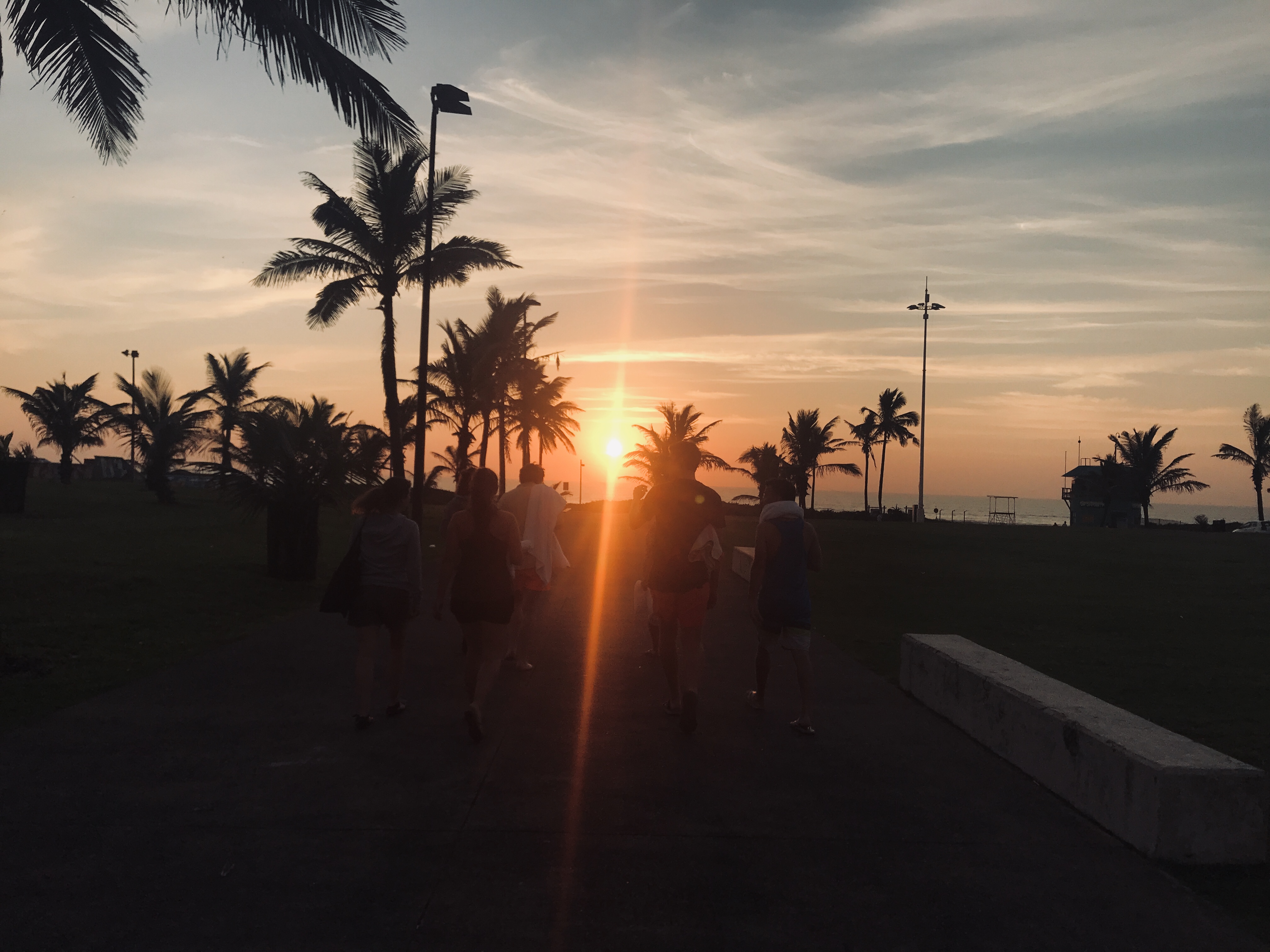
Tourism will likely prove a vital industry for South Africa looking ahead
The 2019 event also marked 25 years since the first democratic elections were held in South Africa and this was celebrated throughout Africa’s Travel Indaba. Nelson Mandela opened the first Indaba in a free South Africa and had these words: “It is in tourism that nature and humanity meet most equitably and profitably. It also provides the resources for the conservation of our natural heritage.” A point still just as relevant a quarter century later. If the government keeps their majority in the national elections, which seems likely, it will be interesting to see how they tackle these key issues going forward.
More Information
South African Tourism is the national tourism agency responsible for the marketing of South Africa as a preferred tourist and business events destination.
Find out more on the official website.
Sapphire Goss

